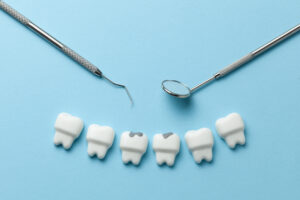 To maintain a healthy smile, we should all be practicing a regular dental routine of brushing, flossing, and attending regular checkups. Your dentist can also help recommend alternative treatment for a variety of concerns, such as the use of an oral appliance to help with bruxism. In the event a cavity forms, your dentist may recommend a dental filling to address signs of early tooth decay. In today’s blog, your Grand Prairie, TX dentist explains how a tooth filling procedure can remove tooth decay and what steps you can take to care for your dental restoration.
To maintain a healthy smile, we should all be practicing a regular dental routine of brushing, flossing, and attending regular checkups. Your dentist can also help recommend alternative treatment for a variety of concerns, such as the use of an oral appliance to help with bruxism. In the event a cavity forms, your dentist may recommend a dental filling to address signs of early tooth decay. In today’s blog, your Grand Prairie, TX dentist explains how a tooth filling procedure can remove tooth decay and what steps you can take to care for your dental restoration.
Looking Forward To Fun In Grand Prairie
 This weekend and in the weekends to come, there are a lot of fun activities and events happening in our community. We want you to mark your calendars and plan some fun with your family this month and next, so be sure to check out today’s blog. Your Grand Prairie, TX, dentist would also like to remind our readers and patients that we can offer care to ensure you greet these events with your best possible smile.
This weekend and in the weekends to come, there are a lot of fun activities and events happening in our community. We want you to mark your calendars and plan some fun with your family this month and next, so be sure to check out today’s blog. Your Grand Prairie, TX, dentist would also like to remind our readers and patients that we can offer care to ensure you greet these events with your best possible smile.
How Oral Appliances Help TMJ/Bruxism Discomfort
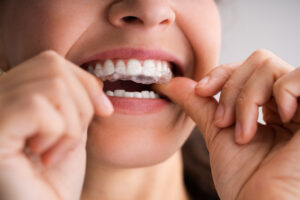
While TMJ disorder and bruxism (teeth grinding) are two very different disorders, they are often related, as one could lead to the onset of the other. But we can offer relief for both with a single treatment option. In today’s blog, your Grand Prairie, TX, dentist talks about treating TMJ disorder and bruxism with oral appliance therapy.
Treatment To Help You Sleep Easier
 When you have chronic snoring and sleep apnea, this could leave you feeling exhausted during the day and even strain your heart health and immune system. To avoid issues with memory and concentration, and to feel more rested during the day, we can help with an oral appliance. In today’s blog, your Grand Prairie, TX, dentist talks about our treatments for snoring and sleep apnea, so you can wake up feeling more rested and refreshed each day.
When you have chronic snoring and sleep apnea, this could leave you feeling exhausted during the day and even strain your heart health and immune system. To avoid issues with memory and concentration, and to feel more rested during the day, we can help with an oral appliance. In today’s blog, your Grand Prairie, TX, dentist talks about our treatments for snoring and sleep apnea, so you can wake up feeling more rested and refreshed each day.
Checking Out Community Fun In Grand Prairie

Every week, we like to dedicate one blog to the fun and exciting things happening in our community. This weekend, you and your family can find Valentine’s Day events and more, getting out of the house to enjoy everything our city has to offer. Some of these events are in the weeks to come, so you can plan accordingly! If you want to attend appointments like these with your best smile, then you should consider an appointment with your Grand Prairie, TX, dentist.
How Checkups And Cleanings Keep Smiles Strong
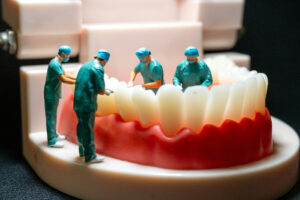
We urge everyone in our community to see us for a dental checkup and cleaning twice a year. These visits may seem minor, but a simple dental exam and cleaning can help protect smiles from serious issues, including cavities and periodontal disease. In today’s blog, your Grand Prairie, TX, dentist talks about the importance of a checkup and cleaning.
What To Do During Your Dental Emergency
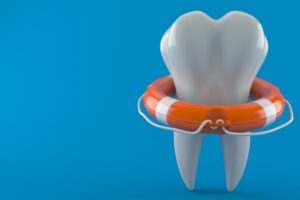
Dental emergencies need immediate attention to protect your smile from complications like tooth decay or dental infection. When is why we’re talking about how to respond to common dental emergencies and when to call our team. In today’s blog, your Grand Prairie, TX, dentist talks about what to do when faced with a dental emergency.
We Can Offer A Full Smile With Prosthetic Dentistry
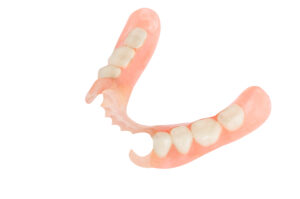
Tooth loss is a very serious oral health concern, one that can weaken your jaw and lead to major complications. But our team has the experience and treatments to replace missing teeth, whether you have a single lost tooth or have lost all of them. In today’s blog, your Grand Prairie, TX, dentist talks about our approach to prosthetic dentistry.
A Tooth Extraction Could Protect Your Smile

When a tooth is beyond treatment with a crown, or if one needs to be removed to aid in orthodontic treatment, you could benefit from a tooth extraction. Our team takes steps to ensure removing a tooth is a gentle and comfortable experience. In today’s blog, your Grand Prairie, TX, dentist looks at the tooth extraction process and why this may be recommended by our team!
Looking For Fun In Grand Prairie

Do you and your family have time to kill this weekend? The time between the holidays and spring is often a weird period of cold, and little to do. But we have a few ideas! You should see what fun activities are happening in Grand Prairie! In addition, we want to remind our patients and their families that we can offer dental care to ensure events like these are attended with bright and shining smiles!







